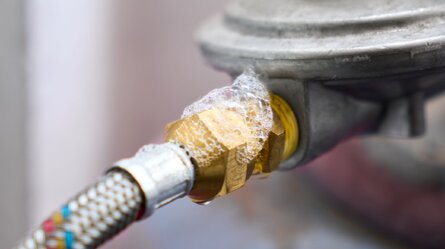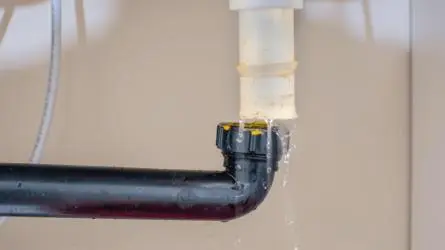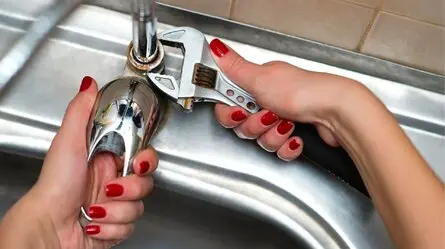Slab leaks, cracks or deterioration in pipes hidden beneath concrete slabs are a common problem in Australian homes (3 in 7 houses, 2 in 10 units). These leaks can cause significant water damage and foundation issues if left undetected.
Luckily, there are several ways to fix these leaks. You can opt for pipe rerouting if the leak is minor, or go for trenchless pipe lining, or even a full pipe replacement in more severe cases. Getting onto leak detection early with a licensed plumber is super important to avoid pricey repairs and structural hassles. Keep an ear out for odd water noises or notice if your water meter readings shoot up, and tackle those leaks quickly to sidestep future issues.
Warning Signs You Might Have a Slab Leak
Dealing with a concrete slab leak can be a real headache. Pipes concealed under the slab make spotting these leaks pretty tricky. But don’t worry, a few telltale signs can clue you in. It’s really important to catch them early on to avoid hefty repair bills and damage to your home.
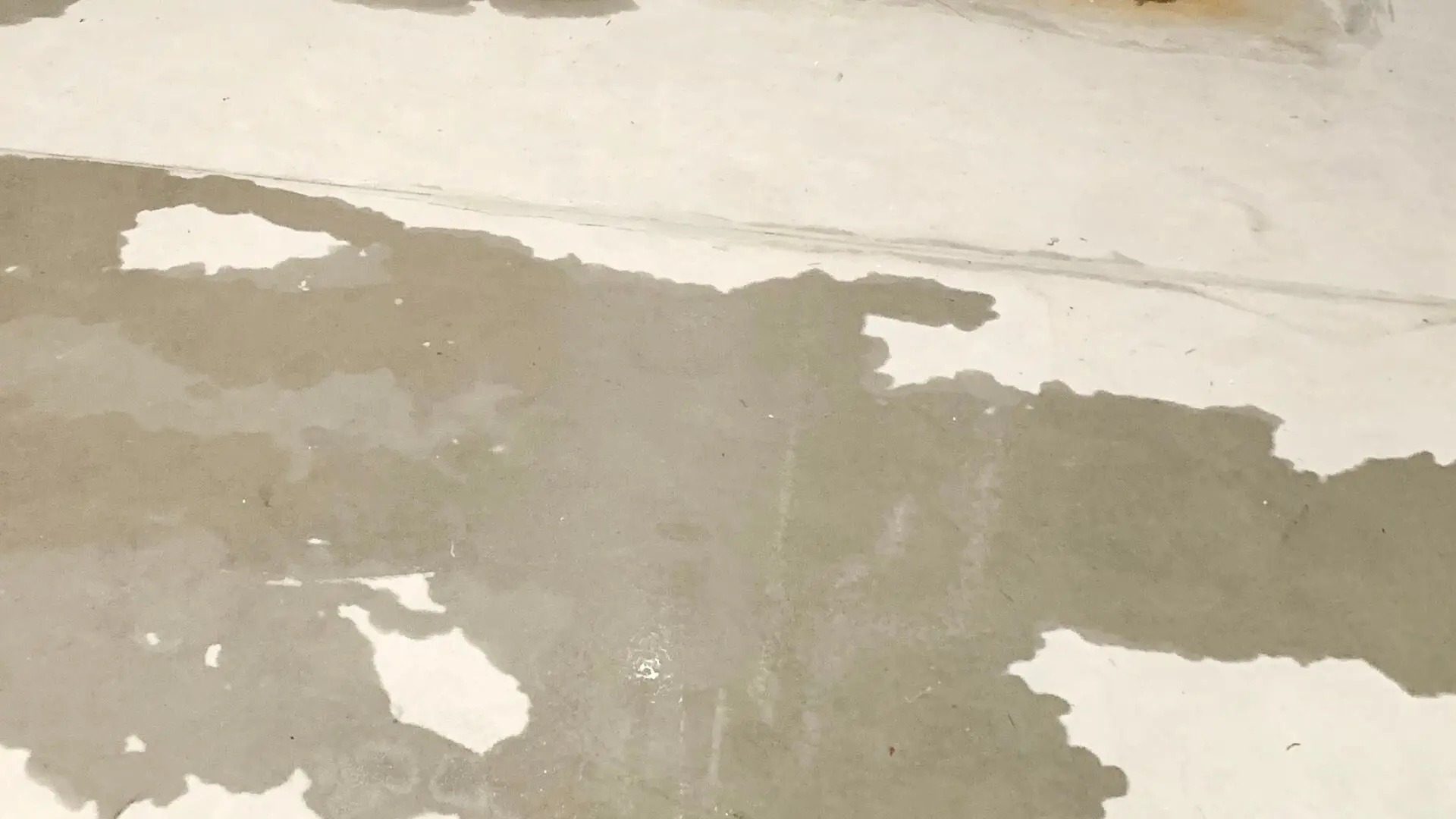
Unexplained Increase in Water Bill
One of the first signs to watch out for is a sudden and unexplained increase in your water bill. This can happen because a slab leak allows constant water to flow undetected, significantly raising your water usage.
Damp Floors or Carpets and Mould Growth
Another red flag is damp floors or carpets, particularly near specific areas like bathrooms, kitchens, or laundry rooms. This dampness suggests water leakage beneath the concrete slab, potentially from damaged pipes like old cast iron pipes, copper pipes, or even chlorinated polyvinyl chloride (CPVC) pipes that are prone to splitting. The moisture can also lead to the growth of mould and mildew, posing health risks and causing unpleasant odours.
Cracked Concrete Floors
Cracked concrete floors can also be a sign of a slab leak. Expansive soil shift due to moisture build-up can cause the concrete foundation to crack. Left unaddressed, these cracks can worsen and compromise the structural integrity of your home.
Unusual Sounds of Running Water
Listen for unusual sounds like rushing water beneath the floor, even when no taps are running. This gurgling or rushing sound can be a telltale sign of a leaky pipe under the slab.
Overlooking these signs might end up costing you big time. Spotting slab leaks isn’t always easy, but a qualified plumber has tricks up their sleeve like acoustic detection or thermal imaging to zero in on the problem. After finding the leak, solutions like trenchless pipe lining are available, which means you don’t have to tear up your concrete foundation. This less intrusive option can save both time and money compared to old-school methods that require lots of digging.
Early detection is key. By being aware of the signs and taking immediate action, you can prevent extensive water damage to your floor coverings, electrical conduit, and even the structural integrity of your home. Don’t wait for your water bill to skyrocket or for expensive flooring to be ruined.
If you suspect a slab leak, contact a licensed plumber for a proper diagnosis and discuss options like trenchless pipe repairs using new, corrosion-resistant materials like cross-linked polyethylene (PEX) pipes. Remember, a small leak today can turn into a major plumbing issue tomorrow, so take action and get your slab leak fixed before it becomes a bigger problem.
Diagnosing a Slab Leak
Think you’ve got a leak under your concrete slab? It might sound tempting to dive in yourself, but finding slab leaks is really best left to the experts. These leaks, tucked away beneath the concrete, can be tough to track down. Luckily, plumbers come equipped with all sorts of specialised tools to spot the problem swiftly and precisely.
Tools for Precise Leak Detection
Electronic leak detection equipment amplifies sounds produced by water moving through damaged pipes. Ground penetrating radar sends electromagnetic pulses that map the slab, revealing the location of water lines and potential breaks. Thermal imaging cameras identify warm spots caused by leaking hot water lines.
Benefits of Professional Diagnosis
These techniques offer significant advantages. Plumbers can minimise unnecessary excavation by precisely locating the leak, saving you time and money. Targeted repairs using new pipes ensure a long-lasting solution, preventing future leaks and potential repair costs.
Don’t risk further damage or a lengthy repair by battling a hidden leak alone. Call a professional plumber for slab leak detection. Their expertise can identify faulty pipes, be it copper, chlorinated polyvinyl chloride (CPVC), or plastic, saving you from rising water bills and potential mould growth. With the leak precisely located, the plumber can plan the most effective repair process, using new plumbing materials suited to your soil composition and minimising the impact on your concrete slab.
Repairing a Slab Leak: Your Options
Slab leaks, or leaks occurring in the concrete slab beneath your house, can be a real headache for homeowners. These hidden water leaks can cause a variety of problems, from increased water bills to damaged foundations and even mould growth. If you suspect a slab leak, it’s crucial to act quickly and get a professional plumber involved for concrete slab leak detection. Luckily, there are several methods available to repair slab leaks, each with its own advantages and disadvantages.
Traditional Slab Break Through
This method involves precisely locating the leak using specialised equipment and then breaking through the concrete slab to access the damaged pipe. The plumber will then cut out the faulty section and replace it with a new pipe, usually made of copper or chlorinated polyvinyl chloride (CPVC) pipe. While this is a straightforward repair for the damaged pipe itself, it’s also the most disruptive method. Breaking through the concrete creates a mess, damages your floor covering, and requires significant repair work afterwards to restore your interior.
Slab Tunneling
Slab tunnelling offers a less disruptive alternative to traditional break-through. A narrow tunnel is excavated beneath the concrete slab, following the path of the plumbing lines to reach the leak. Once the leak is located, the plumber can access and repair the pipe in a similar way to the traditional method. While tunnelling still requires some excavation, it avoids the major disruption of breaking through the entire slab. This method is particularly beneficial for repairs under driveways or other hard-to-reach areas.
Pipe Re-Routing
Pipe re-routing completely bypasses the damaged section of pipe altogether. The plumber will install new pipes above the slab, typically running them through the ceiling or walls. This method offers the significant advantage of avoiding any concrete work altogether. However, it does require making modifications to your walls and ceilings, which may need cosmetic repairs afterwards. Additionally, exposed pipes can be aesthetically unappealing in some areas.
Trenchless Pipe Lining
For a minimally disruptive repair, trenchless pipe lining offers a compelling option. This method involves inserting a lining material, often epoxy resin, into the existing pipe through access points created at either end of the leak. The lining is then inflated and cured, creating a new, sealed pipe within the old one.
Trenchless pipe lining is a quick and efficient repair, often completed in just a few hours, and causes minimal disruption to your home. However, it’s important to note that this method may not be suitable for all types of slab leaks, particularly those involving badly damaged water lines.
Pipe Bursting
Pipe bursting is a relatively new and innovative approach to slab leak repair. This method utilises a special bursting tool that shatters the old pipe while simultaneously feeding a new, high-density polyethylene (HDPE) pipe through the path created. Pipe bursting offers the benefit of replacing the entire damaged pipe with a new, more durable one while minimising excavation compared to traditional methods. However, it’s a more complex procedure than other techniques and may not be as widely available from all plumbers.
Choosing the best method to repair your slab leak depends on several factors, including the location and severity of the leak, the type of pipe material (copper vs. plastic pipes), and your budget. A qualified plumber will be able to assess the situation and recommend the most suitable repair option for your specific needs.
Remember, addressing slab leaks promptly is essential to prevent further damage to your home’s plumbing system, concrete foundation, and overall structure. Don’t hesitate to call a professional if you suspect a water leak, as early detection and repair can save you time, money, and future headaches.
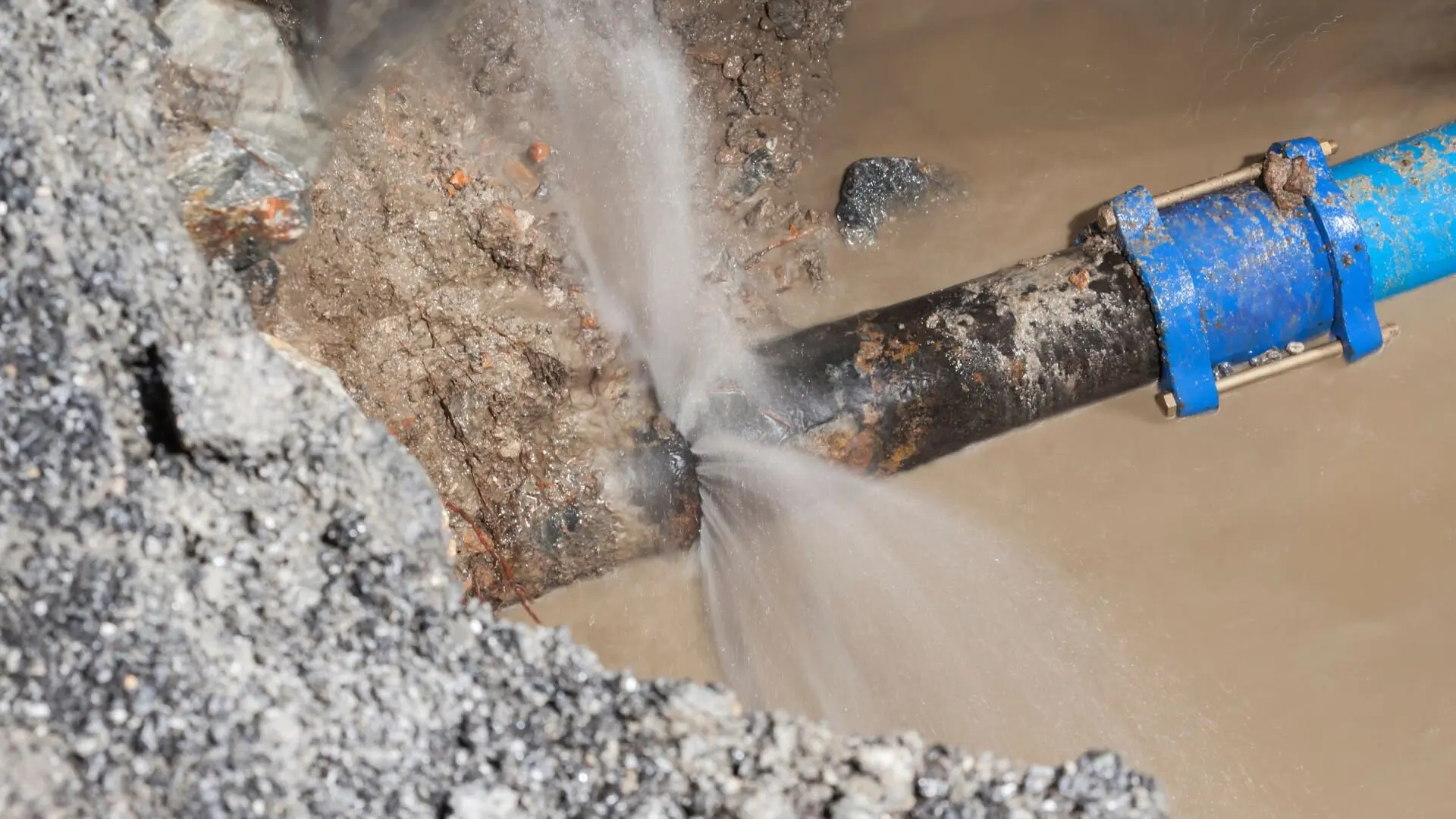
Factors to Consider When Choosing a Repair Method
Deciding on the best repair approach for a slab leak goes beyond just patching the hole. Here’s what to consider:
- Location and Severity: Concrete slab leak detection can be tricky. Knowing if the leak is near the water heater or under a concrete foundation helps determine the repair strategy. A small leak in a copper pipe might require a different approach than extensive pipe splitting in old lines.
- Pipe Material: The type of pipe matters. Chlorinated polyvinyl chloride (CPVC) and polyvinyl chloride (PVC) pipes are more resistant to corrosion than old copper pipes. A plumber can assess if the material can be repaired with epoxy lining or if pipe replacement is needed.
- Accessibility: Is the leak under the kitchen sink or buried deep within the concrete slab foundation? Accessibility can significantly impact the repair method chosen. Exposed pipes offer easier access for repairs compared to those hidden under the slab.
- Budget: Trenchless repairs using pipe lining are often less expensive than breaking through concrete for pipe replacement. However, extensive leaks or faulty pipes throughout the system might necessitate a full re-piping of the hot water and cold water supply lines, impacting the overall cost.
Consulting a qualified plumber is crucial. They can use a moisture meter to pinpoint leaks, assess the condition of your plumbing system (including old lines), and recommend the most suitable solution for your specific situation. Remember, slab leaks can cause wet spots, mildew growth, and even soil expansion around your house. Don’t wait to address water leaks – get your plumbing issues fixed before they turn into bigger problems!
Why Professional Help is Crucial for Slab Leak Repairs
The Hidden Threat: Slab Leaks and Your Home’s Plumbing
Slab leaks, hidden water leaks within your concrete foundation slab, are a homeowner’s nightmare. Repairing them can be a complex undertaking, far from a simple DIY weekend project. Polyvinyl chloride (PVC) pipes, the most common material for plumbing lines in Australia, are susceptible to wear and tear, especially older chlorinated PVC (CPVC) used in the past. Temperature changes and pressure fluctuations can cause these pipes to crack, leading to hidden water leaks.
The Risks of DIY Slab Leak Repair
Attempting a DIY slab leak repair is risky. Accurately detecting the source of the leak requires specialist equipment and expertise. Digging into your concrete foundation without proper knowledge can damage the slab itself and your water supply lines and even expose you to hazards like hot water scalding.
Why Choose a Licensed Plumber?
Licensed plumbers come with loads of experience and bring their A-game. They’ve got high-tech tools to find leaks, pinpointing exactly where the trouble is within your concrete slab. They use their know-how to decide on the best fix, whether it’s mending part of the pipe or swapping out the whole water line.
The Benefits of Professional Slab Leak Repair
Professional plumbers also ensure the repairs are done safely and efficiently. They utilise high-quality materials, often replacing old pipes with modern, more durable options. This minimises the risk of future leaks and ensures your water pressure remains consistent. Additionally, licensed plumbers guarantee their work complies with all relevant building codes and regulations, giving you peace of mind and protecting the value of your home.
Don’t Let Leaks Sink Your Home
When it comes to slab leak repairs, don’t get caught out in the deep end. Let a professional plumber handle the job, ensuring your foundation stays solid and your water supply flows freely.
Don’t Let a Hidden Leak Turn Into a Major Headache
Unfortunately, fixing water pipe leaks under concrete foundations yourself can be complex and risky. Locating the source in the chlorinated polyvinyl chloride (CPVC) pipe system and breaking through concrete require specialist tools and expertise. Ignoring water leaking from damaged water pipes can lead to further problems.
For a guaranteed and stress-free solution, contact Woolf Plumbing. We offer free consultations and quotes for your slab leak repair needs. Our licensed plumbers will diagnose the problem quickly and recommend the most suitable repair method for your pipe system. Call Woolf Plumbing today and get back to enjoying peace of mind.


